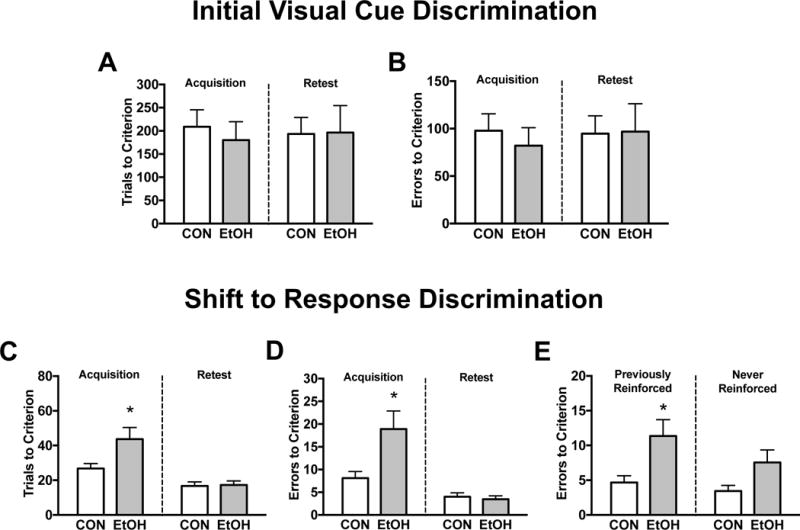Figure 3. Abstinence from chronic intermittent ethanol exposure induces deficits in cognitive flexibility that are characterized by increased perseverative-like responding.

Behavioral performance on an operant model of strategy set-shifting was compared in male Long-Evans rats serving as ethanol-naïve controls (CON, n=9) or undergoing abstinence from chronic intermittent ethanol vapor exposure (EtOH, n=11). The data are separated into two distinct operant procedures: the initial (visual cue) discrimination task in which the rats were required to respond on a lever located on the congruent side of the illuminated cue to receive a food reward, and the set-shift to a spatial discrimination task in which the rats were required to respond on a lever with a set position that was independent of visual cue illumination. A retest of each operant procedure was administered to distinguish between acquisition and retention of task performance. Behavioral measurements (mean ± SEM) included total trials (A and C) and errors (B and D) until rats achieved a criterion threshold for each task. As compared to CON, EtOH rats undergoing abstinence did not display altered performance on the cue discrimination task (A and B) in either test phase. Alternatively, after approximately 10 days of abstinence, EtOH rats displayed higher trials (C) and errors (D) to criterion on the day of the set-shift, although no group differences emerged during the retest of this association. To gain further insight on impaired cognitive performance, we parsed the errors committed during the set-shift into previously- and never-reinforced (E) responses. As compared to CON, EtOH rats committed more errors that would have been correct under the initial task, although a marginal increase in indiscriminate learning errors was also evident. An asterisk (*) denotes significant group differences (p<0.05).
